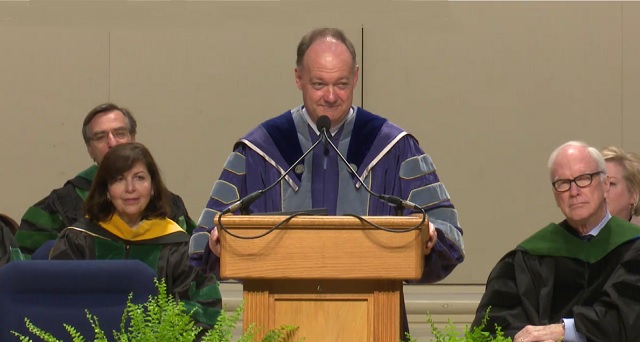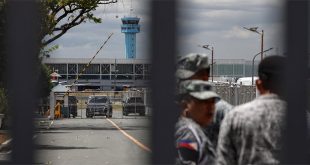
Washington, United States | AFP |
Georgetown University on Thursday announced measures to atone for having profited from the sale of nearly 300 slaves in the 19th century, giving an edge in admissions for their descendants.
University president John DeGioia will discuss the steps in a speech later Thursday on the campus in the US capital Washington, and is due to offer a formal apology.
The moves also include renaming school buildings to honor those enslaved, creating a new institute for the study of slavery and building a public memorial honoring slaves whose work benefited the university.
Georgetown, a Jesuit school founded in 1789, is one of the oldest universities in the United States.
In 1838, the sale of 272 slaves who worked on Jesuit plantations in nearby Maryland helped finance the university’s operations. The sale was worth about $3.3 million in today’s dollars, and the slaves were sent off to Louisiana.
The school used about $500,000 in today’s dollars of the proceeds to pay off the school’s growing debt.
Nearly two centuries after Georgetown’s slave sale, America is still grappling with the legacy of slavery, which was formally abolished in 1865, and how to make amends for it.
The reconciliatory moves are the outcome of a year-long, 16-member working group at Georgetown including students, faculty, staff and alumni. It found that many of the slaves were later resold.
“The most appropriate ways for us to redress the participation of our predecessors in the institution of slavery is to address the manifestations of the legacy of slavery in our time,” DeGioia said in a statement.
Descendants will be given “an advantage in the admissions process,” the working group recommended. But the university stopped short of suggesting they be given financial aid.
“While we acknowledge that the moral debt of slaveholding and the sale of the enslaved people can never be repaid, we are convinced that reparative justice requires a meaningful financial commitment from the university,” its report said.
‘Decades for significant impact’
Other top American universities — including Brown, Columbia and Harvard — have also publicly recognized their own ties to the slave trade.
While hailing Georgetown’s admissions moves as “new” compared to those of its competitors, historian Craig Wilder warned that “it will take decades for it to have any significant impact.”
“For the families who descend from the victims of the 1838 sale, neither a report nor these promises are likely to bring closure,” Wilder, a Massachusetts Institute of Technology professor who has studied universities and slavery, told AFP.
“Its real value will be determined by how these commitments get institutionalized on campus.”
He expressed hope that the steps announced by DeGioia would mark just the “beginning” of Georgetown’s response.
‘Part of our history’
Georgetown’s slaves were not only forced to work at the Jesuit plantations in Maryland.
They also worked on the campus itself, some brought there by wealthy students in the then port city of Georgetown, which was active in the slave trade.
The working group estimated that about 10 percent of the campus population in the early 19th century was enslaved. And all the earliest buildings on campus, including those being renamed, were likely built by slave labor.
The two buildings being renamed originally paid tribute to Thomas Mulledy and William McSherry, two one-time presidents of Georgetown who organized the 1838 slave sale.
One will now be known as Isaac Hall, after the 65-year-old man who was the first person named on a document listing the slaves sold.
The second building will now be called Anne Marie Becraft Hall, honoring a woman who opened a school for black girls in the Georgetown neighborhood in the 1820s.
“Slavery — slave labor and the slave trade — is part of our history,” the working group said in its 102-page report.
“We are, after all, slavery’s beneficiaries still today. There can be neither justice nor reconciliation until we grasp that truth.”
 The Independent Uganda: You get the Truth we Pay the Price
The Independent Uganda: You get the Truth we Pay the Price


